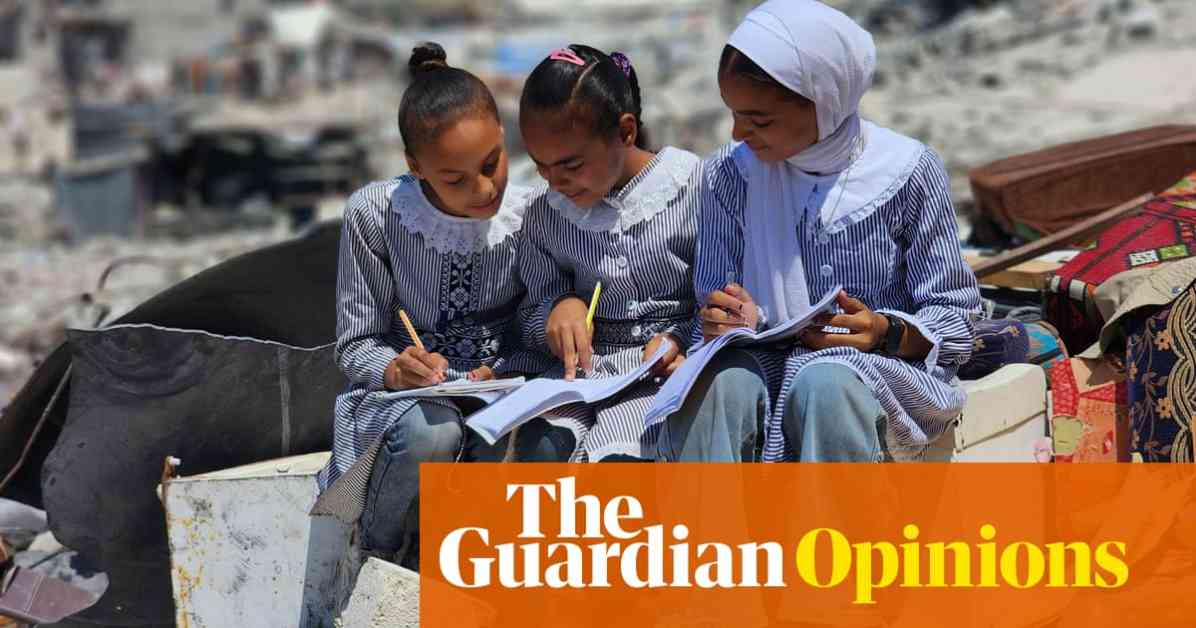Israel’s Bombing of Gaza Schools: A Devastating Blow to Future Generations
The ongoing conflict in Gaza, particularly Israel’s bombing of schools, has had a profound impact on the education and future of its young population. Manar Al Khodari, a medical student from Gaza, shares her personal experience of how the violence has disrupted her education and that of thousands of others in the region. The destruction of school buildings has not only deprived children of their right to education but has also left many without a sense of normalcy and stability that schools provide.
The Devastating Impact on Education
The situation in Gaza is dire, with almost 90% of school buildings estimated to have been damaged or destroyed by the conflict. Schools, once sanctuaries of learning, have now become shelters for the displaced, homeless, and orphaned. The bombing of schools used as shelters has resulted in tragic loss of life, with innocent children paying the ultimate price for a conflict they did not create.
In August, the bombing of two school buildings in the Sheikh Radwan neighborhood left a scene of horror, with children’s bodies lying lifeless amidst the rubble. This was followed by an attack on al-Tabieen religious school and mosque, claiming the lives of at least 93 individuals and leaving a trail of devastation in its wake. The recent bombing of a UN-run school further highlights the urgent need for international intervention to protect the education and lives of Gaza’s children.
The Resilience of Gaza’s Spirit
Despite the devastation, Gaza’s spirit remains unyielding. With a literacy rate of almost 98%, the people of Gaza are determined to continue their pursuit of education. Mothers can still be seen teaching their children the basics of education, even amidst the chaos and destruction. The resilience and determination of Gaza’s people to preserve their humanity through education is truly inspiring.
Challenges and Solutions
One of the major challenges faced by Gazan students is the difficulty in accessing education outside of the region. Many schools in neighboring countries refuse to admit Gazan children without a valid residency permit, a document that is nearly impossible for Palestinians to obtain. Online schooling, often seen as an alternative, falls short in providing the necessary emotional and psychological support that children require in a structured school environment.
Initiatives like exchange programs, elective courses, and summer courses play a crucial role in providing hope and building bridges of understanding for Gaza’s students. These programs not only offer educational opportunities but also connect students to a global community of learners, fostering a sense of belonging and support.
A Call for Solidarity and Action
Manar Al Khodari urges readers to advocate for international scholarships that give students like her a chance to continue their education. By amplifying the voices of Gaza’s students and demanding action from political leaders, we can ensure that education remains a priority, even in times of crisis. Supporting the education of Gaza’s children is not just about learning but also about preserving their humanity and giving them the hope and opportunity to rebuild their communities.
The Future of Gaza’s Youth
Despite the challenges and obstacles, the hope of a brighter future remains alive in Gaza. Manar dreams of walking across the graduation stage and being called Dr. Manar, a testament to the resilience and determination of Gaza’s youth. Education is not just a means of acquiring knowledge but a pathway to healing, rebuilding, and creating a better future for generations to come.
In Conclusion
The bombing of Gaza schools by Israel has had a devastating impact on the education and future of its young population. It is imperative that we stand in solidarity with Gaza’s students and take action to ensure that education remains a priority, even in times of crisis. By supporting initiatives that provide educational opportunities and advocating for international scholarships, we can help Gaza’s children reclaim their right to education and build a brighter future for themselves and their communities.

